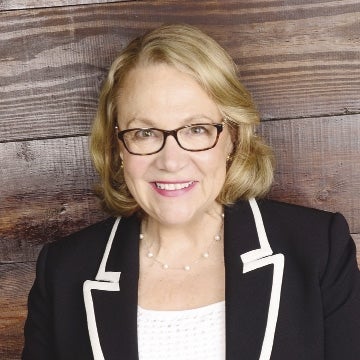Testing executive knocks marijuana regulators
 Photo | Courtesy of Shannon O'Brien
Shannon O'Brien, chair of the Cannabis Control Commission until her suspension in Sept.
Photo | Courtesy of Shannon O'Brien
Shannon O'Brien, chair of the Cannabis Control Commission until her suspension in Sept.
Each person who testified before the Joint Committee on Cannabis Policy on Tuesday got three minutes to make their case. But the founder and CEO of one of the first laboratories approved to test marijuana in Massachusetts probably could have gone on for hours telling lawmakers about the issues he has with the Cannabis Control Commission.
"Three minutes is not nearly enough time to describe the waste, fraud and abuse that we have seen and documented in our interactions with the CCC," Michael Kahn, who heads up MCR Labs in Framingham, said.
Kahn's concerns with the CCC have been circulating within the cannabis world for months. In March, Kahn said, he spoke about lab fraud at a cannabis convention and was critical of the CCC. The next week, CCC enforcement staff showed up at MCR Labs and conducted an unannounced inspection that Kahn described as "unfocused and unprofessional." The fallout from that incident, which was covered by Law360 and the Boston Business Journal at the time, was not Kahn's only issue with the CCC.
"I reached out to the CCC with concerns about public health on multiple occasions over the past several years. Instead of listening or taking action, CCC staff, in my opinion, retaliated by opening an investigation into our laboratory. The investigation was then cited by the CCC as an excuse to prevent us from engaging with commissioners regarding consumer safety," Kahn said. "I believe CCC enforcement staff may be misusing investigations as a pretext to silence and harass licensees."
Kahn was among those who testified Tuesday in support of legislation (H 106 / S 58) filed by Rep. Dan Donahue and Sen. Michael Moore that would create an independent audit unit within the CCC. Donahue is the House co-chair of the Cannabis Policy Committee.
The special audit unit, which Moore's office said is modeled on similar units within the State Police and the Department of Transportation, would be "within the commission, but not subject to the control of the commission," according to the bill text. It would be led by a director appointed by the state inspector general for a term of four years.
The bill would require the unit to "monitor the quality, efficiency and integrity of the commission's operations, including but not limited to, operations under chapters 94G and 94I, host community agreements, investigation and audit policies and procedures, organizational structure and management functions and seek to prevent, detect and correct fraud, waste and abuse in the expenditure of public funds."
A CCC spokesperson said the agency "is proud of the fair and comprehensive investigatory process it has developed and employed since the agency's inception in 2017 to ensure licensees comply with state law and regulations."
The agency also said that it "currently has several ongoing enforcement matters regarding MCR Labs" and said that CCC staff completed an unannounced inspection at another testing lab the week before the one at MCR Labs in March. The CCC said it would not comment on "other investigations referenced during the hearing that remain ongoing."
"Compliance monitoring activities, such as unannounced inspections, are routine and integral to ensuring investigators see how a Marijuana Establishment operates on a typical day, not one in which a licensee prepares for an inspection," an agency spokesperson said. "Investigators are not required to disclose the purpose of their investigation while on site. In fact, staff have an obligation to protect the integrity of Commission investigations to find the truth. Only then can Commissioners review and act on findings without preconceived notions or bias."
Dan Delaney, a State House lobbyist who also serves as executive director of the Association of Cannabis Testing Laboratories, said his association was formed late last year "in response to exactly the kind of concerns raised by Michael Kahn from MCR Labs and hopefully addressed by this legislation."
"From the perspective of many licensees, the Cannabis Control Commission is unpredictable, arbitrary and unaccountable. Licensees recognize the power that CCC has and understandably fear retaliation, if they contest the Commission's intent or actions," Delaney said. He added, "I've heard from other labs, and I've heard it from other licensees, in and outside of the lab testing space."
Delaney, who said he has been involved with the legal cannabis realm since its inception here in 2012, said the real problem with the CCC is a structural one.
"When DPH oversaw the cannabis industry, if you had a question or an issue with the decision that they made at the medical use of marijuana program, you could appeal to the commissioner. If you didn't like what you heard from the commissioner, you could appeal to the secretary of Health and Human Services. If that failed, you could go to the governor's office. There were many points of contact, and the marijuana program itself fit into an accountable and responsive scheme of government," he said. "By contrast, with the CCC and the way it's structured now, if you have a concern with a decision that the executive director makes, you get to appeal to the executive director."
Established in 2017 to oversee the implementation of the 2016 voter law legalizing non-medical marijuana, the CCC began its existence trying to stand up an entirely new state agency, writing rules for the once-illegal industry, and attempting to impose an effective regulatory structure as consumers clamored for dispensaries to open quickly.
In April 2022, the members of the CCC voted to have the commission "participate in mediation between the Commissioners and staff leadership, for purpose of finding common ground and obtaining buy-in from all parties, in its efforts to establish a durable and effective governance structure."
Then-Chairman Steven Hoffman said at the time that the CCC had spent its initial years "flying a plane while we're building it" and that it was time for the commission to more formally delineate the powers of the commissioners and those of the staff.
"Governance, at least as I think about it in this context, is policy versus implementation, and what are the decision-making rights of the commission, what are the decision-making rights of staff, particularly as led by the executive director, where is there overlap, where the lines, where the lines between policy and implementation? And I think we've done a pretty good job of evolving into an effective governance structure using that definition, in terms of how it relates to shared responsibilities, but a lot of it has been implicit," he said.
Hoffman resigned from the CCC later that month.
WBJ Web Partners
I'm so proud of people like Michael Kahn who have the courage to speak up.









1 Comments